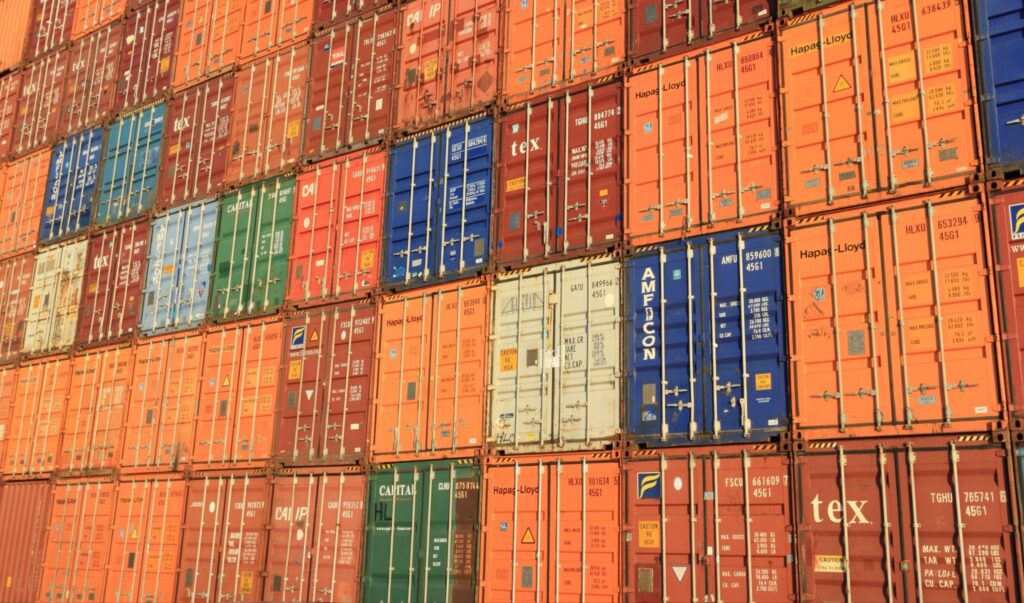Shipping has changed tremendously in the past few years thanks to the world’s growing reliance on e-commerce and the global supply chain. At the forefront of this change are novel technologies that have the potential to revolutionize our world and how we get our products. From automated systems in warehouses to real-time tracking and monitoring of shipments, technology has revolutionized logistics operations. Advanced software solutions enable accurate demand forecasting, optimized routing, and efficient inventory management. Internet of Things sensors and connectivity enable seamless communication and data exchange between various stakeholders. Additionally, technologies like artificial intelligence, machine learning, and predictive analytics provide valuable insights for decision-making and process optimization. From enhancing supply chain visibility to improving customer experience, technology empowers the shipping industry to adapt to changing demands, streamline operations, and drive innovation in an increasingly globalized world.
Automation and Robotics
Table of Contents
Automation and robotics have a growing impact on the shipping industry, transforming it into a more efficient and streamlined operation. With advancements in technology, warehouses, and distribution centers now employ automated systems for sorting, packaging, and loading goods onto trucks and ships. Robots equipped with artificial intelligence and computer vision are capable of performing repetitive tasks with precision and speed, reducing human error and increasing productivity. Some software applications, such as Shipping APIs, have also made the delivery process more efficient by automating label generation and package processing. Autonomous vehicles, including drones and self-driving trucks, have also emerged as game-changers, offering faster and safer transportation of goods. Additionally, smart systems and predictive analytics enable real-time monitoring of inventory levels, optimizing supply chain management. These innovations have not only accelerated the shipping process but also reduced operational costs and environmental impact by minimizing fuel consumption and optimizing routes. The integration of automation and robotics continues to reshape the shipping industry, paving the way for a more efficient and sustainable future.
Predictive Analytics and Machine Learning
Machine learning and predictive analytics are leading technologies that help companies manage their supply chains. By harnessing vast amounts of data and leveraging advanced algorithms, these technologies enable organizations to make accurate forecasts, optimize inventory levels, and improve overall operational efficiency. Machine learning algorithms can analyze historical data, identify patterns, and make predictions about future demand, allowing companies to proactively adjust their inventory and distribution strategies. Furthermore, predictive analytics can optimize routing and scheduling, minimizing transportation costs and improving delivery times. Real-time monitoring of shipments and the use of Internet of Things sensors provide valuable insights into the condition and location of goods, ensuring transparency and minimizing the risk of disruptions. The integration of predictive analytics and machine learning has empowered logistics companies to make data-driven decisions, enhance customer satisfaction, and gain a competitive edge in an increasingly dynamic industry.
Blockchain and Smart Contracts
Blockchain and smart contracts are revolutionizing the shipping industry by offering increased transparency, efficiency, and security. Blockchain technology provides an immutable and decentralized ledger, enabling all participants in the supply chain to have real-time access to a single version of the truth. This eliminates the need for intermediaries and reduces the risk of fraud, delays, and disputes. Smart contracts, built on blockchain, automate and enforce contract terms, ensuring secure and efficient execution of transactions. They enable automated payments, track shipments, and trigger actions based on predefined conditions. This streamlined process improves trust, reduces paperwork, and speeds up the flow of goods. By leveraging blockchain and smart contracts, the shipping industry is moving towards a more reliable, efficient, and accountable ecosystem.
Sustainability and Green Shipping
Eco-friendly shipping options have gained prominence as businesses strive to reduce their environmental impact. One of the key strategies is the adoption of alternative fuels and energy sources in shipping vessels. From using liquefied natural gas (LNG) to electric propulsion systems, these technologies significantly reduce greenhouse gas emissions and air pollution. Additionally, optimizing shipping routes and implementing efficient logistics practices help minimize fuel consumption and carbon footprint. Another approach is the use of sustainable packaging materials, such as biodegradable or recyclable materials, reducing waste generation. Eco-friendly shipping options not only benefit the environment but also offer economic advantages. Companies that prioritize sustainability often enjoy improved brand reputation, attracting environmentally conscious consumers. Furthermore, adopting green shipping practices can lead to cost savings in the long run through reduced fuel consumption and operational efficiency. Ultimately, eco-friendly shipping options promote a greener future while supporting business growth and sustainability goals.
Cybersecurity in the Shipping Industry
Cybersecurity has emerged as a critical concern in the shipping industry, leading to a growing focus on implementing robust measures to protect against cyber threats. One notable trend is the increasing adoption of advanced security solutions like intrusion detection systems, firewalls, and encryption protocols to safeguard networks and data. There is also a rising emphasis on employee education and training to promote cybersecurity awareness and best practices. Additionally, the industry is witnessing collaborations and partnerships with cybersecurity experts and organizations to enhance threat intelligence and response capabilities. As cyber threats continue to evolve, the shipping industry is proactively adapting to mitigate risks and safeguard its operations, data, and the integrity of global supply chains.
